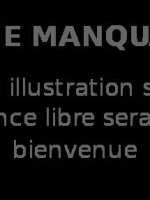Patrice Chéreau is a Actor, Director, Scriptwriter and Producer French born on 2 november 1944 at Lézigné (France)
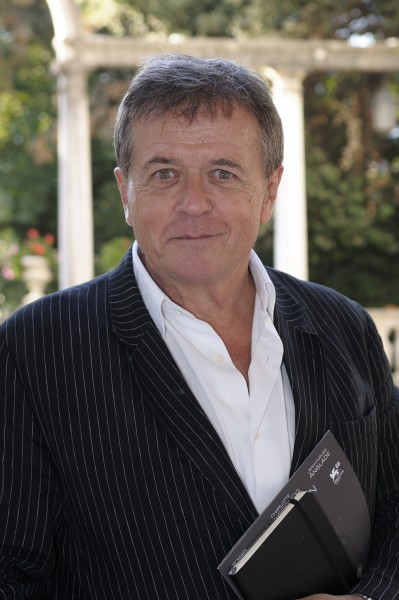
Patrice Chéreau ([pa.tʁis ʃe.ʁo]; 2 November 1944 – 7 October 2013) was a French opera and theatre director, filmmaker, actor and producer. In France he is best known for his work for the theatre, internationally for his films La Reine Margot and Intimacy, and for his staging of the Jahrhundertring, the centenary Ring Cycle at the Bayreuth Festival in 1976. Winner of almost twenty movie awards, including the Cannes Jury Prize and the Golden Berlin Bear, Chéreau served as president of the jury at the 2003 Cannes festival.
From 1966, he was artistic director of the Public-Theatre in the Parisian suburb of Sartrouville, where in his team were stage designer Richard Peduzzi, costume designer Jacques Schmidt and lighting designer André Diot, with whom he collaborated in many later productions. From 1982, he was director of "his own stage" at the Théâtre Nanterre-Amandiers at Nanterre where he staged plays by Jean Racine, Marivaux and Shakespeare as well as works by Jean Genet, Heiner Müller and Bernard-Marie Koltès.
He accepted selected opera productions, such as: the first performance of the three-act version of Alban Berg's Lulu, completed by Friedrich Cerha, at the Paris Opera in 1979; Berg's Wozzeck at the Staatsoper Berlin in 1994; Wagner's Tristan und Isolde at La Scala in 2007; Janáček's From the House of the Dead, shown at several festivals and the Metropolitan Opera; and, as his last staging, Elektra by Richard Strauss, first performed at the Aix-en-Provence Festival in July 2013. He was awarded the Europe Theatre Prize in 2008.
With "idealism and inventiveness", he made the theatre a "municipal commodity", presenting not only theatre but also "cinema, concerts, poetry productions, lectures and debates about everything from politics to pot". His theatrical team included costume designer Jacques Schmidt, stage designer Richard Peduzzi and lighting designer André Diot, with whom he collaborated in many later productions.
In 1968 he directed The Soldiers by Jakob Michael Reinhold Lenz at the Festival of Youth Theatre in Nancy. In 1969 he staged his first opera production, Rossini's L'italiana in Algeri for the Spoleto Festival, again with his Sartrouville team. The following year he established a close artistic relationship with the leadership of the Piccolo Teatro in Milan, Paolo Grassi and Giorgio Strehler. There he staged Pablo Neruda's "revolutionary oratorio" The Splendour and Death of Joaquin Murieta. He often collaborated with Claude Stratz. In 1970 he directed Shakespeare's Richard II at the Théâtre de France. His first staging for the Paris Opera was in 1974 Offenbach's Les contes d'Hoffmann. He showed Hoffmann, sung by Nicolai Gedda as a "sensitive poet for whom love is beyond reach, ... a drunken loser". In 1975 he worked in Germany for the first time directing Edward Bond's Lear, set in an "industrial landscape strewn with piles of slag, with Lear as a Baron Krupp in evening dress and top hat". He commented on the "macabre" production: "Just as some people feed on hope, I feed on despair. For me it is a spur to action." Also in 1975, his directorial debut film was the thriller La Chair de l'orchidée, based on James Hadley Chase's 1948 novel The Flesh of the Orchid, sequel to No Orchids for Miss Blandish (1939). The film assembled a starry cast including Edwige Feuillère, Simone Signoret, Alida Valli and Charlotte Rampling "in the [Miss Blandish] role giving a performance of extraordinary intensity. It was an almost operatic version of the misunderstood 1948 British film."
Bayreuth
In 1976 he staged Wagner's Der Ring des Nibelungen at the Bayreuth Festival to celebrate the festival's centenary, termed the Jahrhundertring. The production, celebrating 100 years after Wagner's work had been performed for the first time as a cycle at the first Bayreuth Festival, became known as the Jahrhundertring (Centenary Ring). Chéreau collaborated with conductor Pierre Boulez, who had recommended him to the festival direction. The French team revolutionised the understanding of Wagner in Germany, as music critic Eleonore Büning wrote in her obituary in the Frankfurter Allgemeine Zeitung. Chéreau set the scene in the time of the composition, with a critical view of the time's capitalism, industrialism and spiritual background. The staging left a standard for productions of the Ring Cycle to follow.
He directed the first performance of the three-act version of Alban Berg's Lulu, completed by Friedrich Cerha, at the Paris Opera on 24 February 1979, again conducted by Boulez and with sets by Peduzzi, with Teresa Stratas singing the title role.
The Ring production, filmed for television in 1980, was initially met with controversial reactions but was celebrated after its final performance in 1980 in a 45-minute standing ovation. Chéreau disliked grand opera, but said: "After Bayreuth, I felt the need to work on a theatrical project of some breadth ... I have never put on little things. I am interested only in spectacles that rise above themselves". He first considered Goethe's Faust but then directed in 1981 Henrik Ibsen's Peer Gynt for Villeurbane and Paris, aiming at "an incandescence of theatrical experience, a global spectacle".
Amandiers
From 1982 Chéreau was director of "his own stage" at the Théâtre Nanterre-Amandiers at Nanterre. He staged there several plays by Bernard-Marie Koltès, as well as works by Jean Genet, Pierre de Marivaux, Heiner Müller, Jean Racine and Shakespeare.
In 1983 he directed the film The Wounded Man (L'Homme Blessé), a more personal project for him. He and his co-writer, Hervé Guibert, worked for six years on the scenario, which tells of a love affair between an older man involved in prostitution and a teenage boy, a dark view in the context of HIV/AIDS. His 1994 film was La Reine Margot, based on the 1845 historical novel of the same name by Alexandre Dumas. It won the Jury Prize and Best Actress Award (Virna Lisi) at Cannes, as well as five César Awards. Set in the 16th-century between Catholics and Protestants in France, it shows battles and the St Bartholomew's day massacre, Chéreau's longest, most expensive and his greatest financial success. "[I]t was erotic and violent, and offers poured in from Hollywood," but, he said, "I was always being offered films based in the Renaissance and involving a massacre. I even had an offer from the UK to do a film about Guy Fawkes." He refused similar offers: "It's useless to repeat something you already did."
His staging of Berg's Wozzeck, conducted by Daniel Barenboim, was filmed at the Staatsoper Berlin in 1994, with Franz Grundheber (de) in the title role and Waltraud Meier as Marie. A review notes the "presentation of even the smallest roles as deeply-considered characters".
In 1998 he directed the film Those Who Love Me Can Take the Train, a "melodramatic, sentimental and emptily wordy ... about the interplay of assorted characters on their way to the funeral of a misanthropic, bisexual minor painter (Jean-Louis Trintignant)."
Chéreau's only English-language film, Intimacy (2001), based on short stories by Hanif Kureishi (who also wrote a novel of the same title in 1998), was played by English actors, including Timothy Spall and Marianne Faithfull, and deals with "the possessiveness of a musician from London who regularly meets a woman for sexual encounters". It "was a tale of sexual obsession which sparked a debate about unsimulated sex on screen. But, Chéreau said, 'It is not like a porno film, not at all erotic sometimes, but it is beautiful because it is life.'" In 2003 he directed His Brother (Son frère), centred "on the relationship between two estranged brothers, one gay, the other straight. They come together when the latter suffers from a potentially fatal blood disease. The hospital processes are shot unflinchingly, without sentimentality, which makes this meditation on mortality even more moving." That year he served at Cannes as president of the jury.
In 2007 he staged Wagner's Tristan und Isolde at La Scala, conducted by Daniel Barenboim. He had stayed away from the opera because he regarded it as "predominantly a musical rather than a theatrical work", but his "sombre, subtle direction – with Waltraud Meier an acutely vulnerable Isolde – was intensely moving".
He directed Leoš Janáček's From the House of the Dead, again conducted by Boulez, first shown at the Vienna Festival in 2007, later also at the Holland Festival, the Aix-en-Provence Festival, the Metropolitan Opera (his debut there in 2009) and La Scala. Chéreau's last film was Persécution (2009), "a gloomy, episodic film" about a man who is "haunted by a love-hate relationship with his girlfriend". His last production was Elektra by Richard Strauss, conducted by Esa-Pekka Salonen, shown at the Aix-en-Provence Festival in July 2013 and scheduled for the MET's 2015–16 season. A review noted: "The clichés of Fascist brutality and expressionist exaggeration are astutely avoided: this is a situation that involves human beings, not caricatures, in a visually neutral environment of bare walls, windows and doors (designed by Richard Peduzzi) which is also blackly portentous in atmosphere."
Chéreau was in a long-term relationship with his lover and favorite actor Pascal Greggory. He was not interested in gay topics, saying: "I never wanted to specialise in gay stories, and gay newspapers have criticised me for that. Everywhere love stories are exactly the same. The game of desire, and how you live with desire, are the same."
Chéreau died in Paris on 7 October 2013 from lung cancer. He was 68 years old.
Source : Wikidata
Patrice Chéreau

- Infos
- Photos
- Best films
- Family
- Characters
- Awards
Nationality France
Birth 2 november 1944 at Lézigné (France)
Death 7 october 2013 (at 68 years) at Paris (France)
Birth 2 november 1944 at Lézigné (France)
Death 7 october 2013 (at 68 years) at Paris (France)
Patrice Chéreau ([pa.tʁis ʃe.ʁo]; 2 November 1944 – 7 October 2013) was a French opera and theatre director, filmmaker, actor and producer. In France he is best known for his work for the theatre, internationally for his films La Reine Margot and Intimacy, and for his staging of the Jahrhundertring, the centenary Ring Cycle at the Bayreuth Festival in 1976. Winner of almost twenty movie awards, including the Cannes Jury Prize and the Golden Berlin Bear, Chéreau served as president of the jury at the 2003 Cannes festival.
From 1966, he was artistic director of the Public-Theatre in the Parisian suburb of Sartrouville, where in his team were stage designer Richard Peduzzi, costume designer Jacques Schmidt and lighting designer André Diot, with whom he collaborated in many later productions. From 1982, he was director of "his own stage" at the Théâtre Nanterre-Amandiers at Nanterre where he staged plays by Jean Racine, Marivaux and Shakespeare as well as works by Jean Genet, Heiner Müller and Bernard-Marie Koltès.
He accepted selected opera productions, such as: the first performance of the three-act version of Alban Berg's Lulu, completed by Friedrich Cerha, at the Paris Opera in 1979; Berg's Wozzeck at the Staatsoper Berlin in 1994; Wagner's Tristan und Isolde at La Scala in 2007; Janáček's From the House of the Dead, shown at several festivals and the Metropolitan Opera; and, as his last staging, Elektra by Richard Strauss, first performed at the Aix-en-Provence Festival in July 2013. He was awarded the Europe Theatre Prize in 2008.
Biography
Chéreau was born in Lézigné, Maine-et-Loire. His father Jean-Baptiste Chéreau was a painter, his mother Marguerite Pelicier a graphic designer. He attended school in Paris. Early on he was taken to the Louvre and was interested in the arts, cinema, theatre and music. At age 12 he designed stage sets for plays. He became well-known to Parisian critics as director, actor, and stage manager of his high-school theatre (lycée Louis-le-Grand). At 15, he was enthusiastically celebrated as a theatre prodigy. In 1964, at the age of 19, he began directing for the professional theatre. While studying at the Sorbonne, he professionally staged Victor Hugo's L'Intervention, and subsequently dropped out of the university. In 1966 he was appointed artistic director of the Public-Theatre in the Parisian suburb of Sartrouville.With "idealism and inventiveness", he made the theatre a "municipal commodity", presenting not only theatre but also "cinema, concerts, poetry productions, lectures and debates about everything from politics to pot". His theatrical team included costume designer Jacques Schmidt, stage designer Richard Peduzzi and lighting designer André Diot, with whom he collaborated in many later productions.
In 1968 he directed The Soldiers by Jakob Michael Reinhold Lenz at the Festival of Youth Theatre in Nancy. In 1969 he staged his first opera production, Rossini's L'italiana in Algeri for the Spoleto Festival, again with his Sartrouville team. The following year he established a close artistic relationship with the leadership of the Piccolo Teatro in Milan, Paolo Grassi and Giorgio Strehler. There he staged Pablo Neruda's "revolutionary oratorio" The Splendour and Death of Joaquin Murieta. He often collaborated with Claude Stratz. In 1970 he directed Shakespeare's Richard II at the Théâtre de France. His first staging for the Paris Opera was in 1974 Offenbach's Les contes d'Hoffmann. He showed Hoffmann, sung by Nicolai Gedda as a "sensitive poet for whom love is beyond reach, ... a drunken loser". In 1975 he worked in Germany for the first time directing Edward Bond's Lear, set in an "industrial landscape strewn with piles of slag, with Lear as a Baron Krupp in evening dress and top hat". He commented on the "macabre" production: "Just as some people feed on hope, I feed on despair. For me it is a spur to action." Also in 1975, his directorial debut film was the thriller La Chair de l'orchidée, based on James Hadley Chase's 1948 novel The Flesh of the Orchid, sequel to No Orchids for Miss Blandish (1939). The film assembled a starry cast including Edwige Feuillère, Simone Signoret, Alida Valli and Charlotte Rampling "in the [Miss Blandish] role giving a performance of extraordinary intensity. It was an almost operatic version of the misunderstood 1948 British film."
Bayreuth
In 1976 he staged Wagner's Der Ring des Nibelungen at the Bayreuth Festival to celebrate the festival's centenary, termed the Jahrhundertring. The production, celebrating 100 years after Wagner's work had been performed for the first time as a cycle at the first Bayreuth Festival, became known as the Jahrhundertring (Centenary Ring). Chéreau collaborated with conductor Pierre Boulez, who had recommended him to the festival direction. The French team revolutionised the understanding of Wagner in Germany, as music critic Eleonore Büning wrote in her obituary in the Frankfurter Allgemeine Zeitung. Chéreau set the scene in the time of the composition, with a critical view of the time's capitalism, industrialism and spiritual background. The staging left a standard for productions of the Ring Cycle to follow.
He directed the first performance of the three-act version of Alban Berg's Lulu, completed by Friedrich Cerha, at the Paris Opera on 24 February 1979, again conducted by Boulez and with sets by Peduzzi, with Teresa Stratas singing the title role.
The Ring production, filmed for television in 1980, was initially met with controversial reactions but was celebrated after its final performance in 1980 in a 45-minute standing ovation. Chéreau disliked grand opera, but said: "After Bayreuth, I felt the need to work on a theatrical project of some breadth ... I have never put on little things. I am interested only in spectacles that rise above themselves". He first considered Goethe's Faust but then directed in 1981 Henrik Ibsen's Peer Gynt for Villeurbane and Paris, aiming at "an incandescence of theatrical experience, a global spectacle".
Amandiers
From 1982 Chéreau was director of "his own stage" at the Théâtre Nanterre-Amandiers at Nanterre. He staged there several plays by Bernard-Marie Koltès, as well as works by Jean Genet, Pierre de Marivaux, Heiner Müller, Jean Racine and Shakespeare.
In 1983 he directed the film The Wounded Man (L'Homme Blessé), a more personal project for him. He and his co-writer, Hervé Guibert, worked for six years on the scenario, which tells of a love affair between an older man involved in prostitution and a teenage boy, a dark view in the context of HIV/AIDS. His 1994 film was La Reine Margot, based on the 1845 historical novel of the same name by Alexandre Dumas. It won the Jury Prize and Best Actress Award (Virna Lisi) at Cannes, as well as five César Awards. Set in the 16th-century between Catholics and Protestants in France, it shows battles and the St Bartholomew's day massacre, Chéreau's longest, most expensive and his greatest financial success. "[I]t was erotic and violent, and offers poured in from Hollywood," but, he said, "I was always being offered films based in the Renaissance and involving a massacre. I even had an offer from the UK to do a film about Guy Fawkes." He refused similar offers: "It's useless to repeat something you already did."
His staging of Berg's Wozzeck, conducted by Daniel Barenboim, was filmed at the Staatsoper Berlin in 1994, with Franz Grundheber (de) in the title role and Waltraud Meier as Marie. A review notes the "presentation of even the smallest roles as deeply-considered characters".
In 1998 he directed the film Those Who Love Me Can Take the Train, a "melodramatic, sentimental and emptily wordy ... about the interplay of assorted characters on their way to the funeral of a misanthropic, bisexual minor painter (Jean-Louis Trintignant)."
Chéreau's only English-language film, Intimacy (2001), based on short stories by Hanif Kureishi (who also wrote a novel of the same title in 1998), was played by English actors, including Timothy Spall and Marianne Faithfull, and deals with "the possessiveness of a musician from London who regularly meets a woman for sexual encounters". It "was a tale of sexual obsession which sparked a debate about unsimulated sex on screen. But, Chéreau said, 'It is not like a porno film, not at all erotic sometimes, but it is beautiful because it is life.'" In 2003 he directed His Brother (Son frère), centred "on the relationship between two estranged brothers, one gay, the other straight. They come together when the latter suffers from a potentially fatal blood disease. The hospital processes are shot unflinchingly, without sentimentality, which makes this meditation on mortality even more moving." That year he served at Cannes as president of the jury.
In 2007 he staged Wagner's Tristan und Isolde at La Scala, conducted by Daniel Barenboim. He had stayed away from the opera because he regarded it as "predominantly a musical rather than a theatrical work", but his "sombre, subtle direction – with Waltraud Meier an acutely vulnerable Isolde – was intensely moving".
He directed Leoš Janáček's From the House of the Dead, again conducted by Boulez, first shown at the Vienna Festival in 2007, later also at the Holland Festival, the Aix-en-Provence Festival, the Metropolitan Opera (his debut there in 2009) and La Scala. Chéreau's last film was Persécution (2009), "a gloomy, episodic film" about a man who is "haunted by a love-hate relationship with his girlfriend". His last production was Elektra by Richard Strauss, conducted by Esa-Pekka Salonen, shown at the Aix-en-Provence Festival in July 2013 and scheduled for the MET's 2015–16 season. A review noted: "The clichés of Fascist brutality and expressionist exaggeration are astutely avoided: this is a situation that involves human beings, not caricatures, in a visually neutral environment of bare walls, windows and doors (designed by Richard Peduzzi) which is also blackly portentous in atmosphere."
Chéreau was in a long-term relationship with his lover and favorite actor Pascal Greggory. He was not interested in gay topics, saying: "I never wanted to specialise in gay stories, and gay newspapers have criticised me for that. Everywhere love stories are exactly the same. The game of desire, and how you live with desire, are the same."
Chéreau died in Paris on 7 October 2013 from lung cancer. He was 68 years old.
Best films
Usually with
Filmography of Patrice Chéreau (18 films)
Actor
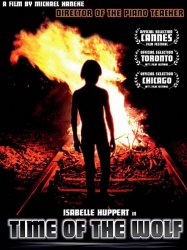
Time of the Wolf (2003)
, 1h53Directed by Michael Haneke
Origin France
Genres Drama
Themes Films about children, La fin du monde, Post-apocalyptic films, Films about religion, Théâtre, Films set in the future, Political films, Films based on plays, Dystopian films, Disaster films
Actors Isabelle Huppert, Maurice Bénichou, Béatrice Dalle, Brigitte Roüan, Patrice Chéreau, Daniel Duval
Roles Thomas Brandt
Rating64%





A disaster of some type has occurred, of which the audience only knows that uncontaminated water is scarce and livestock have to be burned. Fleeing the city, the Laurent family arrive at their country home, hoping to find refuge and security, only to discover that it is already occupied by strangers.

Nearest to Heaven (2002)
, 1h40Directed by Tonie Marshall
Origin France
Genres Drama, Romance
Actors Catherine Deneuve, William Hurt, Bernard Le Coq, Gilbert Melki, Hélène Fillières, Nathalie Richard
Roles Pierre
Rating53%





Inspiré et portant de fréquentes citations du film culte de Leo MacCarey, dans sa deuxième version, Elle et lui (An affair to remember) avec Deborah Kerr et Cary Grant, ce film montre une Catherine Deneuve omniprésente (pratiquement aucune scène sans elle) mais volontairement déstabilisée (et déstabilisante) par la mise en scène et un rôle un peu flottant où elle ne cesse de courir derrière une silhouette, un rêve d'amour évanouis.

Time Regained (1999)
, 2h49Directed by Raoul Ruiz
Origin France
Genres Drama
Actors Catherine Deneuve, Emmanuelle Béart, John Malkovich, Marie-France Pisier, Vincent Pérez, Pascal Greggory
Roles Voice of Marcel Proust
Rating66%





En feuilletant nostalgiquement son album de photos, le narrateur de la Recherche, très malade et alité, voit défiler sa vie.
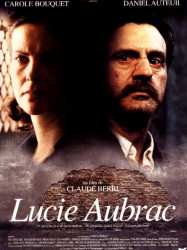
Lucie Aubrac (1997)
, 1h55Directed by Claude Berri, Frédéric Auburtin
Origin France
Genres Drama, Biography
Themes French war films, Political films, Histoire de France, L'Occupation allemande en France
Actors Carole Bouquet, Daniel Auteuil, Patrice Chéreau, Jean-Roger Milo, Bernard Verley, Heino Ferch
Roles Jean Moulin
Rating65%





Ce film retrace l'histoire de la vie de Lucie Aubrac pendant la résistance à l'occupation nazie, dont un "coup d'éclat" réussi... l'organisation d'un commando pour faire évader son mari Raymond Aubrac.
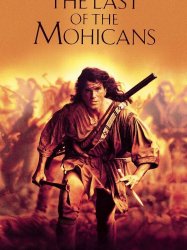
The Last of the Mohicans (1992)
, 1h52Directed by Michael Mann
Origin USA
Genres Drama, War, Action, Adventure, Historical, Romance, Western
Themes Political films, Children's films
Actors Daniel Day-Lewis, Madeleine Stowe, Russell Means, Jodhi May, Eric Schweig, Steven Waddington
Roles General Montcalm
Rating76%





The action of the story takes place in 1757 during the French and Indian War (part of the Seven Years' War) in the Adirondack Mountains in what was then the British colony of New York. Three frontiersmen are traveling west to find a new home. The oldest is Chingachgook, the last chief of the Mohican tribe. With him is his son, Uncas, and an adopted son, a white man named Nathaniel Poe, who also goes by the name “Nathaniel Hawkeye”.
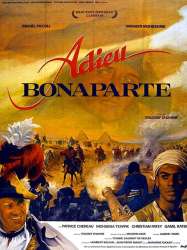
Goodbye, Bonaparte (1985)
, 1h55Directed by Youssef Chahine
Origin Egypte
Genres Drama, War, Historical
Themes Films set in Africa, French war films, Political films, Histoire de France, Napoleonic Wars films
Actors Patrice Chéreau, Michel Piccoli, Tahia Carioca, Gamil Ratib, Hoda Soltane, Salah Zulfikar
Roles Napoléon Bonaparte
Rating62%





En 1798, Bonaparte envahit l’Égypte et se pose en libérateur face à l’oppression turque. Il est accompagné du général Caffarelli, homme de cœur et d’esprit, qui se lie d’amitié avec deux jeunes Égyptiens. Au fur et à mesure, Bonaparte se révèle un conquérant sans scrupules et la résistance s’organise. Le général Caffarelli et ses deux disciples en feront partie.
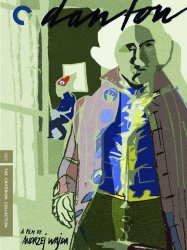
Danton (1983)
, 2h16Directed by Andrzej Wajda
Origin Pologne
Genres Drama, Biography, Historical
Themes Théâtre, Political films, Films based on plays, Histoire de France, French Revolution films
Actors Gérard Depardieu, Wojciech Pszoniak, Anne Alvaro, Patrice Chéreau, Bogusław Linda, Roger Planchon
Roles Camille Desmoulins
Rating73%





The film begins in the spring of 1794, when the Reign of Terror was in full swing. On the borders of Paris, any vehicles entering Paris, including the carriage of Danton, who has just ridden in, are being searched. Robespierre, meanwhile, is sick in his bed. His landlady's daughter, Éléonore Duplay, attempts to comfort him, but is unable to. Her nephew, whom she is taking care of, is meanwhile being made to memorize lines from the Declaration of the Rights of Man and Citizen. Back in the streets of Paris, starving lines of people, waiting for bread, discuss the possible reasons for the lack of it. Whether or not it is an enemy plot, the people do know that they are hungry, and that hunger leads to revolt. Once the bread store actually opens, and they finally begin to receive their bread, they are distracted by their other source of faith and hope in life: Danton. As Robespierre is watching, Danton is swarmed by a mob of supporters and fans, who all cry out for help. Robespierre, in his flat, is visited by Heron, the chief of the secret police, and instructs him to destroy the print shop of Camille Desmoulins, who is publishing pro-Dantonist circulars.
Director
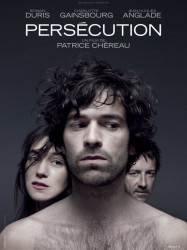
Persecution (2009)
, 1h38Directed by Patrice Chéreau
Origin France
Genres Drama
Themes Films about sexuality, LGBT-related films, LGBT-related films, LGBT-related film
Actors Romain Duris, Charlotte Gainsbourg, Jean-Hugues Anglade, Hiam Abbass, Alex Descas, Gilles Cohen
Rating53%





Daniel, 35, is haunted by a stranger who regularly breaks into his house and spies on him. One day, the stranger, a seemingly harmless middle-aged man, confronts Daniel and tells him that he is the man of his life. Daniel is shocked by the admission and tells the stranger to stay away. Daniel has a girlfriend, Sonia, whom he persecutes yet also worships. Sonia prioritizes her career before her relationship with Daniel and ignores his needs.

Gabrielle (2005)
, 1h30Directed by Patrice Chéreau
Origin German
Genres Drama, Thriller, Comedy, Action, Romance
Actors Isabelle Huppert, Pascal Greggory, Thierry Hancisse, Chantal Neuwirth, Thierry Fortineau, Clément Hervieu-Léger
Rating61%





Jean Harvey and his wife Gabrielle are renowned within Paris' haute bourgeoisie for the salons they host each Thursday evening.

His Brother (2003)
, 1h35Directed by Patrice Chéreau
Origin France
Genres Drama, Comedy
Themes Medical-themed films, Films about sexuality, LGBT-related films, LGBT-related films, LGBT-related film
Actors Bruno Todeschini, Éric Caravaca, Nathalie Boutefeu, Maurice Garrel, Sylvain Jacques, Catherine Ferran
Rating68%





Brothers Thomas (Bruno Todeschini) and Luc (Eric Caravaca) have an estranged relationship. One day, Thomas comes to Luc's apartment explaining that he is ill and asks if Luc will accompany him to the hospital. Thomas has an undetermined platelet disorder which is treated with cortisone and splenectomy—neither help. Luc, who happens to be gay, and is in a relationship with Vincent (Sylvain Jacques), is viewed by their father as the stronger of the two and wishes it was Luc that were ill, as he could beat the illness.
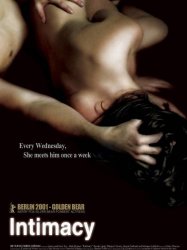
Intimacy (2001)
, 1h59Directed by Patrice Chéreau
Origin France
Genres Drama, Fantasy, Romance
Themes Films about sexuality, Erotic films, Erotic thriller films
Actors Mark Rylance, Kerry Fox, Alastair Galbraith, Susannah Harker, Timothy Spall, Philippe Calvario
Rating60%





Jay (Rylance) is a bartender who abandoned his family, because his wife lost interest in him and their relationship.
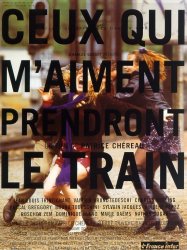 , 2h10
, 2h10Directed by Patrice Chéreau
Origin France
Genres Drama, Romance
Themes Films about families, L'action se déroule en une journée, Peinture, Films about sexuality, Transport films, LGBT-related films, Transgender in film, Rail transport films, LGBT-related films, LGBT-related film, Film se déroulant dans un train
Actors Jean-Louis Trintignant, Pascal Greggory, Charles Berling, Valeria Bruni Tedeschi, Vincent Pérez, Bruno Todeschini
Rating62%





The film follows the friends of a recently deceased minor painter Jean-Baptiste Emmerich as they take a train from Paris to Limoges, where he is to be buried, attend his funeral, then gather at the home of his twin brother, Lucien. The mourners include François, who spends the journey listening to a series of taped conversations with the painter; Jean-Marie and Claire, a couple whose marriage has broken down; Emmerich's former lover Lucie; Louis, a close friend of François, and Bruno a young man with whom he has fallen in love. As the train heads south, the travellers watch the car carrying Emmerich's coffin being driven recklessly alongside the train by their friend Thierry.
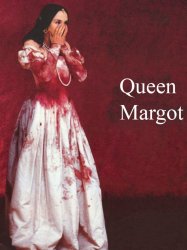
Queen Margot (1994)
, 2h39Directed by Patrice Chéreau, Emmanuel Hamon, Jérôme Enrico
Origin France
Genres Drama, Historical, Romance
Themes Films about families, Politique, Films about sexuality, Political films, Histoire de France, Films about marriage, Films about royalty
Actors Isabelle Adjani, Daniel Auteuil, Jean-Hugues Anglade, Virna Lisi, Vincent Pérez, Dominique Blanc
Rating73%





During the late 16th century, Catholics and Protestant Huguenots are fighting over political control of France, which is ruled by the neurotic, hypochondriac King Charles IX (Jean-Hugues Anglade), and his mother, Catherine de' Medici (Virna Lisi), a scheming power player. Catherine decides to make an overture of goodwill by offering up her daughter Margot (Isabelle Adjani) in marriage to Henri de Bourbon (Daniel Auteuil), a prominent Huguenot and King of Navarre, although she also schemes to bring about the notorious St. Bartholomew's Day Massacre of 1572, when thousands of Protestants are slaughtered. The marriage goes forward but Margot, who does not love Henri, begins a passionate affair with the soldier La Môle (Vincent Pérez), also a Protestant from a well-to-do family. Murders by poisoning follow, as court intrigues multiply and Queen Catherine's villainous plotting to place her son the Duke of Anjou (Pascal Greggory) on the throne threatens the lives of La Môle, Margot and Henri of Navarre. A book with pages painted with arsenic is intended for Henri but instead causes the slow, agonizing death of King Charles. Henri escapes to Navarre and sends La Môle to fetch Margot, but Guise apprehends him. La Môle is beheaded in the Bastille before Margot can save him, and King Charles finally dies. Margot escapes carrying La Môle's embalmed head as Anjou is proclaimed King of France as Henry III.
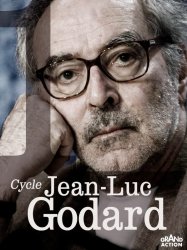
Against Oblivion (1991)
, 1h50Directed by Robert Kramer, Michel Piccoli, Bernard Giraudeau, Jacques Doillon, Patrice Leconte, Bertrand Tavernier, Chantal Akerman, Coline Serreau, Michel Deville, Costa-Gavras, Bertrand Blier, Alain Corneau, Alain Resnais, Jean-Luc Godard, Claire Denis, Gérard Frot-Coutaz, Francis Girod, Romain Goupil, René Allio, Denis Amar, Jean Becker, Nadine Trintignant, Jane Birkin, Raymond Depardon, Patrice Chéreau, Jacques Deray, Jean-Michel Carré, Jean-Loup Hubert, Philippe Muyl
Genres Drama, Documentary
Actors Guy Bedos, Jane Birkin, Carole Bouquet, Emmanuelle Béart, Catherine Deneuve, Alex Descas
Rating59%





Film collectif français réalisé par une trentaine de réalisateurs, dont Alain Resnais et Jean-Luc Godard , et sorti en 1991, pour témoigner du devenir de prisonniers politiques.

Hôtel de France (1987)
, 1h38Directed by Patrice Chéreau
Origin France
Genres Drama, Comedy
Themes Théâtre, Films based on plays
Actors Laurent Grévill, Valeria Bruni Tedeschi, Vincent Pérez, Laura Benson, Thibault de Montalembert, Marc Citti
Rating49%





Quand ils avaient vingt ans, Michel et Sonia se sont aimes. Ils faisaient partie d'une bande de copains provinciaux, et Michel en etait le leader, celui qui "irait loin". Mais il s'est arrete en chemin, et voila qu'ils se retrouvent tous a une reception quelques annees plus tard. Sonia ne peut s'empecher d'etre decue et Michel d'en etre blesse.
 Connection
Connection
